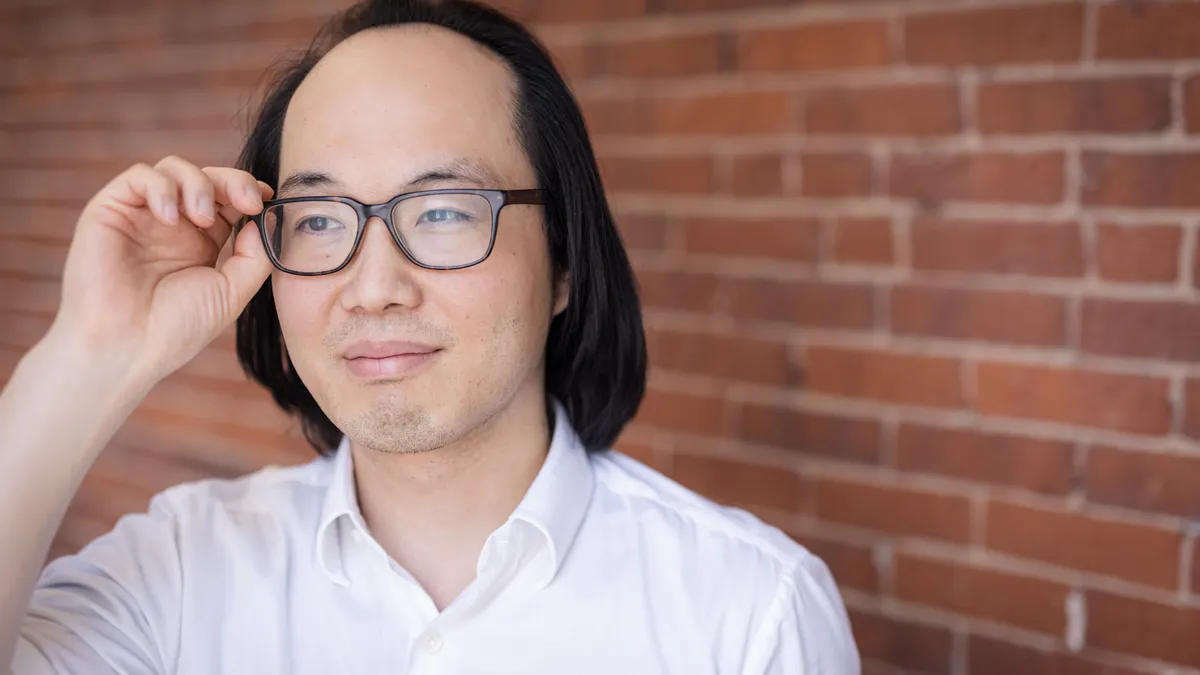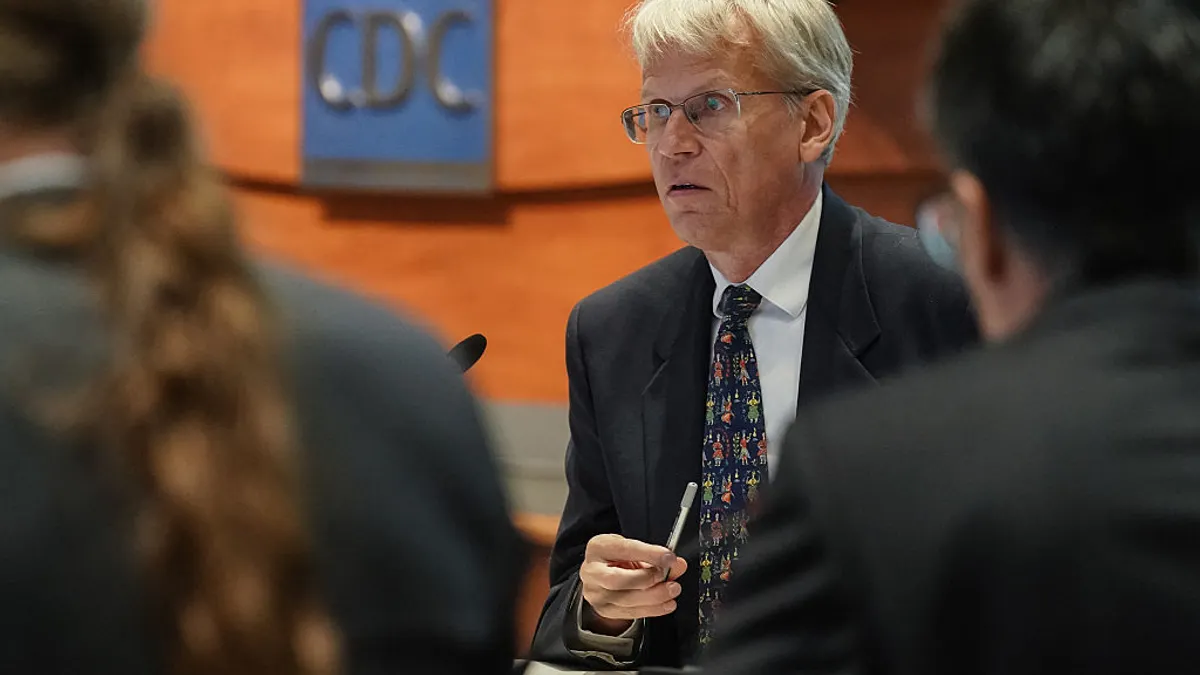Tasuku Kitada has a high tolerance for change, risk and uncertainty — he might even thrive on it — and those are essential traits for a biopharma entrepreneur, especially one who helped invent the field in which he’s working.
Kitada is the co-founder, president and head of R&D at Strand Therapeutics, an emerging biopharma that says it’s creating “programmable long-acting mRNA drugs capable of delivering precise … potentially curative treatments with a single dose.”
Strand may not have the star power of the COVID-19 pandemic’s mRNA giants Moderna and BioNTech, but Kitada has been a believer in the technology since long before it was well known. According to a former colleague, Kitada recognized its potential while in academia and helped successfully develop a technique to engineer mRNA using synthetic biology-based genetic programs — an approach that later became the basis of Strand.
“We were the first group to take synthetic messenger RNA and create engineered synthetic networks with it,” Kitada says.
Launched in 2019 by Kitada and CEO Jake Becraft, Strand is now aiming to push the technology to its next frontier by programming “smarter” mRNA drugs that could deliver cures in oncology and beyond.
Through its platform, Strand uses synthetic mRNA against cancer by precisely programming and controlling it to only express anti-cancer mechanisms in the disease itself, ensuring that therapy is safer than other options like chemotherapy, which poisons the entire body.
“That's the value proposition and platform technology that we've been building,” Kitada says. “A synthetic mRNA program network that goes inside cancer cells, and then only expresses protein in the cancer cells, and kills the cancer cells.”
Last summer, the company won two Phase I Small Business Innovation Research grants from the National Cancer Institute of the National Institutes of Health to develop mRNA-based therapeutics for melanoma and triple negative breast cancer, as well as contract to develop an off-the-shelf CAR-T immunotherapy for B cell non-Hodgkin’s lymphoma. It also embarked on a partnership with China-based BeiGene last year to develop and commercialize solid tumor immuno-oncology therapeutics based on Strand’s mRNA technology.
Adapting to change
Leaving academia to launch a company might feel risky, and it certainly is, but Kitada has experienced constant change throughout his life and learned how to adapt to new people, circumstances, surroundings and even cultures from a young age.
Kitada has bounced back and forth between Asia, the U.S. and Europe — along with all of its disparate languages and cultures — for decades. He was born in Japan, but his family moved to the U.S. when Kitada was a toddler and lived on the East Coast for years before moving back to Japan to live in Tokyo when he was 10. The cultural whiplash forced Kitada — by then an Americanized child — to adapt to a life of “cram schools,” a laser focus on academics and getting into the right college.
For Kitada, the “right college” was the University of Tokyo, but he credits a memoir by the Japanese scientist and Nobel laureate Susumu Tonegawa — who also studied in the U.S. — for stoking his interest in molecular biology and DNA, as well as the desire to someday return to the U.S. for graduate school.
As he progressed into his career, Kitada continued to uproot himself again and again: first returning to the U.S. to get his Ph.D. in molecular biology from UCLA; then by moving across the country to do his postdoctoral work at MIT; and yet again by moving to Belgium, where he now lives with his Polish-Belgian wife and their children. Through it all he prides himself on promoting diversity, equity and inclusion in his work and is actively involved in the Bioscience & Investor Inclusion Group, a coalition focused on those issues in the biosciences field.
“My risk tolerance is very high. And so I think that’s kind of what led me to launch Strand."

Tasuku Kitada
Co-founder, president, head of R&D, Strand Therapeutics
It’s a life that’s been defined by ongoing change but also, a constant drive to pivot and readjust to new situations. That doesn’t mean that Kitada is instantly comfortable wherever he lands. Instead, he trusts himself to know that after a period of adjustment and learning, he’ll “be able to get the hang of it.”
“Each time, I felt like, ‘OK, after a little bit of adjustment, I can kind of understand how it works…and then ultimately be very productive in each environment,” he said. “That gave me an enormous amount of confidence that I can operate in any kind of environment.”
Because of this, he doesn’t hesitate to try something new and doesn’t worry when he does.
“I just don't have that fear,” he said. “That’s ... the mentality that I have, and I think that helps a lot.”
A tolerance for risk
This ability to confront change not only personally, but professionally, too, and is crucial for a biopharma entrepreneur. In fact, this mentality helped him make the leap from the lab to the boardroom and take a risk that other academics in similar positions might hesitate to do — or not do at all.
“I see a lot of extremely smart, talented people that might be a little bit more conservative with the way they think,” he said. They frequently have ideas for companies, but their risk aversion prevents them from actually bringing their ideas to life.
“I think the difference between an entrepreneur and people that are not entrepreneurs is how risk averse you are, and if you have a high-risk aversion, I think you end up not doing it,” he continued. “My risk tolerance is very high. And so I think that's kind of what led me to launch Strand with (Becraft).”
In fact, before they launched the company, Kitada was working as a biotech analyst, but wasn’t fulfilled with his role as merely an industry pundit and observer.
“My life goal has never been to make a lot of money for rich people,” he said. “Instead of watching these people develop drugs, grow their companies, I wanted to try it myself.”
Now, Kitada said their lead development candidate — a “potent” replicating RNA that “stimulates the immune system from inside the tumors” — is slated to enter the clinic next year targeting melanoma, squamous cell carcinoma of the head and neck, and triple negative breast cancer.
That drug will be injected directly into the tumor, and although Kitada said the Strand team is “psyched” about it and the efficacy they’re seeing in animal models, he acknowledges that the injection delivery system limits the kinds of cancer it can treat.
That’s why they’re “even more excited” about the next generation of its technology: IV-delivered drugs that are precisely engineered to only express protein inside certain cells, even though they’re being delivered throughout the body. Kitada says they’re working on two versions: One platform targets cancer cells, the other targets immune cells.
“Those are going to be just really revolutionary,” he says.



















